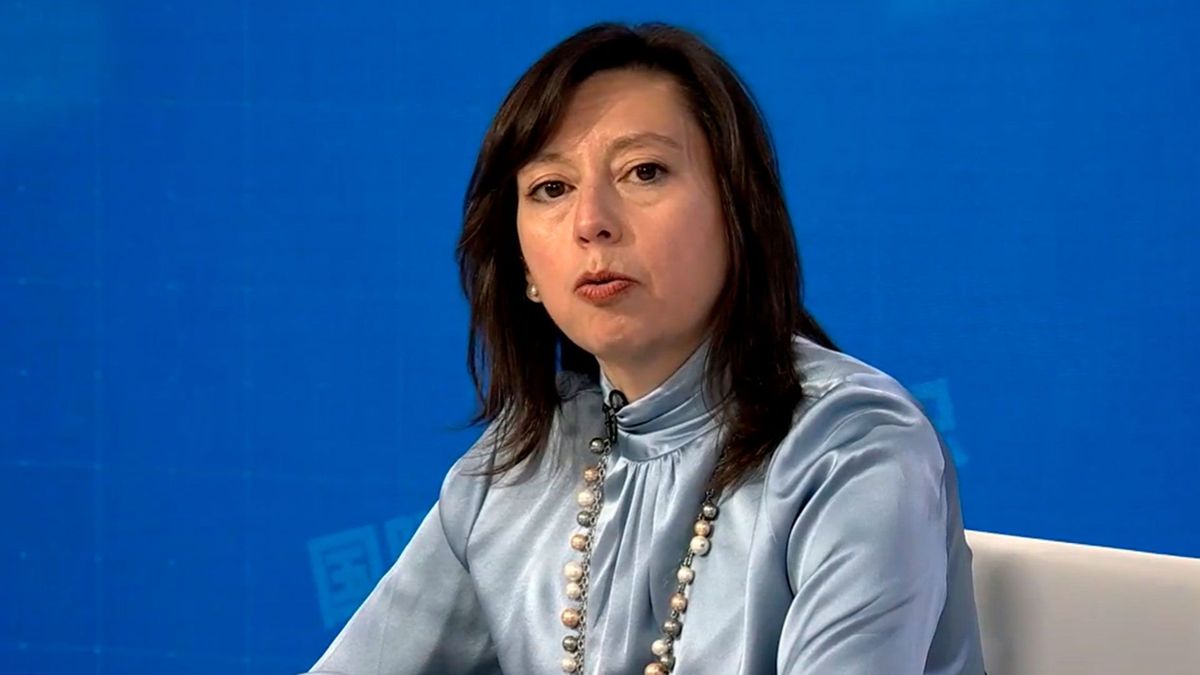Regarding the meeting of the organization’s board of directors, a necessary step for the disbursement of US$5.3 billion that the country will receive, Kozack said that the meeting be held “coming soon”. Although he did not specify a date, on two occasions he indicated that it will be carried out within the usual schedules. The official expectation is that the Board of Directors approves the review corresponding to the last quarter of 2022 by the end of this month.
Ambit He asked whether the Fund could evaluate modifying the fiscal target -established at 1.9% in relation to GDP for this year- considering the negative effects of the drought and the war in Ukraine.
Argentina has been raising the need to contemplate in the agreement the unfavorable conditions, both external and internal. According to official calculations, the war in Ukraine meant a cost for the country of the order of US$5,000 million. Much more serious is the impact of the drought with an estimated reduction of around US$20,000 million in export earnings and a drop of US$6,000 million in tax collection.
In this regard, the spokesperson recalled that on March 13 the agency’s technical staff and the Argentine authorities reached an agreement on meeting the goals of the fourth quarter of last year, even with a margin. After consideration by the Board, Argentina, stated, “You will have access to a disbursement of US$5.300 million.”
The official remarked that the “prudent driving” of macroeconomic policy in the second half of 2022 “They supported stability and ensured the fulfillment of the goals.”
But he pointed out that due to the “more challenging” conditions facing the country, particularly due to the “increasingly severe drought” they make necessary the “adoption of stronger measures to safeguard stability”. In this regard, he referred to the “increased inflation and political setbacks.”
It should be remembered that Kozack knows Argentina well since, during the first two years of Alberto Fernández’s government, he was in charge of the staff that negotiated the current program with the then minister Martín Guzmán. She was later appointed as deputy director of the entity’s European Department, a position she left to take charge of the Fund’s communications.
The remaining challenges, according to the IMF
In its statement, the Fund warns that “in a more challenging economic context, particularly the increasingly severe drought, stronger policy actions are needed to safeguard stability, address rising inflation and policy setbacks, as well as maintain the anchor of the program.
Immediately, Argentina requested a modification of the net international reserve accumulation objective for 2023, in response to the lower inflow of foreign currency derived from the drought.
This request was contemplated by the Fund, but in the last statement it is also made clear that there will be no changes to the fiscal goal. It is pointed out that “The authorities are committed to reaching the primary fiscal deficit of 1.9 percent of GDP in 2023 through continued spending controls, better targeting of energy subsidies and social assistance, and better prioritization of capital spending, while protecting priority social and infrastructure spending.”
In particular, the IMF emphasizes the need to continue implementing the segmentation scheme in energy rates, eliminating subsidies for higher-income residential users as of May and for commercial users at the end of 2023.
The commitment also contemplates maintaining positive interest rates to cope with inflationary pressures. The Central Bank recently raised the rate to 300 points.
The press report says that in parallel, “the efforts to ensure external competitiveness and strengthen reserve coverage will continue, which the economic leadership plans to complement through the timely rationalization of the exchange rate policy.”
The statement also states that the Argentine authorities “undertake not to use international reserves or issue short-term external debt instruments to intervene in parallel exchange markets.”
Another objective that remains is a limit of 0.6% of GDP for the monetary financing of the fiscal deficit. In this regard, the Fund considers that “a proactive debt management strategy is being implemented with caution and good communication in the local market.”
This policy “is helping to face debt maturities, especially in the second and third quarters, mobilize internal financing and improve the functioning of the bond and foreign exchange markets, avoiding adding vulnerabilities in the future.” In principlethe recent measures that establish the exchange of public sector bonds, would be in line with this criterion.
In addition, it is noted that the authorities continue to mobilize official financing from multilateral and bilateral sources, including by finalizing bilateral agreements with the few remaining Paris Club creditors.
In this matter, It should be remembered that, at the beginning of the month, Massa obtained a loan from the Development Bank of Latin America (CAF) by USD 840 million that will finance gas pipeline works for Vaca Muerta.
Argentina’s commitment to the IMF
The Fund ponders the minister’s leadership Sergio Massa for his “continuous commitment to address macroeconomic imbalances and safeguard stability,” according to a statement from the agency’s technical staff on March 13.
In the context of the shortage of foreign currency that the country is facing, the approval by the Fund’s technical staff of the latest review of the progress of the Argentine program was key, which will allow -after consideration by the Board- that Argentina has access to around USD 5.3 billion (SDR 4 billion) by the end of the month.
This approval was achieved on the basis of “prudent macroeconomic management” in the second half of last year, according to the Fund, which “supported stability and helped with some margin to secure the objectives of the program until the end of 2022”.
In this review, the technicians indicated that all the quantitative performance criteria until the end of December 2022 were met with a certain margin. Thus, the primary fiscal deficit in 2022 reached 2.3% of GDP (compared to a target of 2.5%)in particular due to the solid control of spending and the actions to improve the targeting of subsidies and social assistance.
At the same time, net international reserves increased by USD 5.4 billion (above the target of USD 5 billion), due to improvements in the trade balance and significant official support.
However, in its statement the Fund also warns that “in a more challenging economic context, particularly the increasingly severe drought, stronger policy actions are needed to safeguard stability, address rising inflation and policy setbacks.” , as well as maintaining the anchor of the program”.
Source: Ambito




